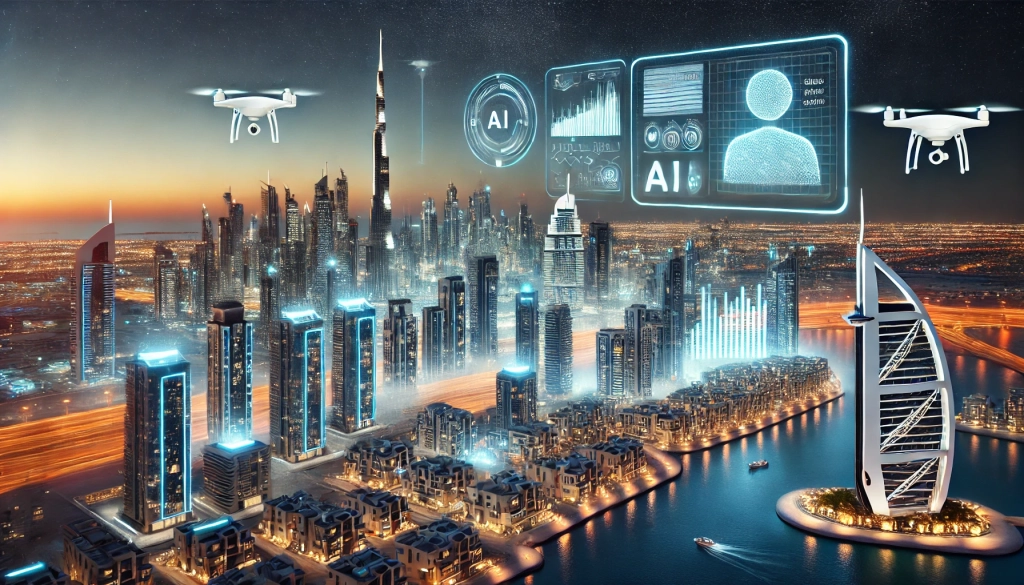Now Reading: Artificial Intelligence reshapes UAE property price trends
-
01
Artificial Intelligence reshapes UAE property price trends
Artificial Intelligence reshapes UAE property price trends

Artificial Intelligence in UAE property prices is changing how investors, developers, and policymakers understand the real estate market. With data playing an increasingly vital role, AI is stepping in to deliver more accurate predictions, helping stakeholders make smarter decisions about buying, selling, and investing.
The UAE property market is one of the most dynamic in the world, with Dubai and Abu Dhabi leading major real estate growth. Price movements have traditionally been influenced by oil markets, global economic conditions, government policies, and population shifts. However, as markets become more complex, traditional methods of forecasting are no longer enough. This is where AI brings a game-changing advantage.
Why property price prediction matters in the UAE
Real estate is a cornerstone of the UAE economy, contributing significantly to GDP. Investors both domestic and international rely heavily on understanding market directions before making decisions. Predicting property prices accurately can:
- Reduce risks for buyers and investors.
- Help developers plan sustainable projects.
- Support government housing strategies.
- Attract more foreign investment with market transparency.
The challenge has always been the unpredictable nature of global markets and the speed at which economic conditions can change. AI provides a way to handle these complexities.
How Artificial Intelligence predicts property prices
AI uses advanced algorithms and machine learning models to analyze large volumes of data. Instead of relying on a few indicators, AI systems evaluate thousands of variables at once. In the UAE property market, these may include:
- Transaction history: Previous property sales and rental trends.
- Location factors: Proximity to schools, metro stations, malls, and landmarks.
- Macroeconomic indicators: Oil prices, interest rates, global trade trends.
- Demographic patterns: Population growth, expatriate inflows, employment rates.
- Government policies: Visa reforms, foreign ownership rules, and free-zone incentives.
- Seasonality and events: Expo 2020 legacy, COP28, tourism surges.
By processing this data, AI creates predictive models that can forecast short-term and long-term price movements with greater accuracy than traditional methods.
Benefits of using AI in the UAE property market
- Greater accuracy: AI reduces human bias by relying on data patterns rather than guesswork.
- Real-time insights: Prices and demand forecasts can be updated instantly as new data comes in.
- Personalized predictions: AI tools can tailor predictions to individual investor profiles.
- Early warning systems: Detect potential market downturns before they happen.
- Transparency: Improves trust among international investors seeking reliable forecasts.
For example, a property investor using AI tools could assess whether apartments in Downtown Dubai are likely to appreciate faster than villas in Yas Island, based on real-time data.
Examples of AI adoption in UAE real estate
The UAE has already embraced AI across sectors as part of its broader UAE Artificial Intelligence Strategy 2031. In real estate:
- Smart platforms such as Property Finder and Bayut use AI to provide price estimates and personalized recommendations.
- Developers are using AI to decide the best timing and pricing of new launches.
- Banks and mortgage providers use AI risk models to evaluate loan approvals.
- Government initiatives leverage AI to regulate housing supply and urban planning.
This early adoption positions the UAE as a global leader in AI-driven real estate innovation.
Challenges of AI in property price prediction
Despite its benefits, AI in real estate is not without challenges:
- Data quality: Predictions are only as strong as the data fed into the system. Missing or biased data can skew results.
- Market shocks: Sudden global crises (like COVID-19) may create unpredictable patterns AI struggles to anticipate.
- Over-reliance on technology: Investors still need human judgment and market experience alongside AI tools.
- Privacy concerns: Using large datasets raises questions about personal and financial data protection.
To overcome these issues, the UAE is working to improve data transparency, digital infrastructure, and AI regulations.
The future of AI in UAE property forecasting
The UAE government has made AI a national priority, and real estate will remain a key beneficiary. In the coming years, we can expect:
- AI-powered smart cities where real-time data from sensors and IoT devices influence property valuations.
- Blockchain integration with AI to create transparent, secure property transactions.
- Custom AI tools for investors that combine financial planning with property predictions.
- More government involvement in using AI for housing policies and urban growth.
Ultimately, AI will make the UAE property market more efficient, transparent, and attractive to global investors.
Conclusion: A smarter future for UAE real estate
The rise of Artificial Intelligence in UAE property prices marks a new era for the country’s real estate sector. By improving prediction accuracy, AI reduces risks, supports sustainable growth, and builds investor confidence.
While challenges remain, the UAE’s commitment to AI innovation ensures that property forecasting will continue to evolve. For investors, developers, and policymakers, AI is no longer just a trend it is becoming an essential tool for navigating the complexities of one of the world’s most dynamic property markets.
Follow us on: Instagram
Read More –Dubai Sports City: Integrated Lifestyle for Families and Professionals






















